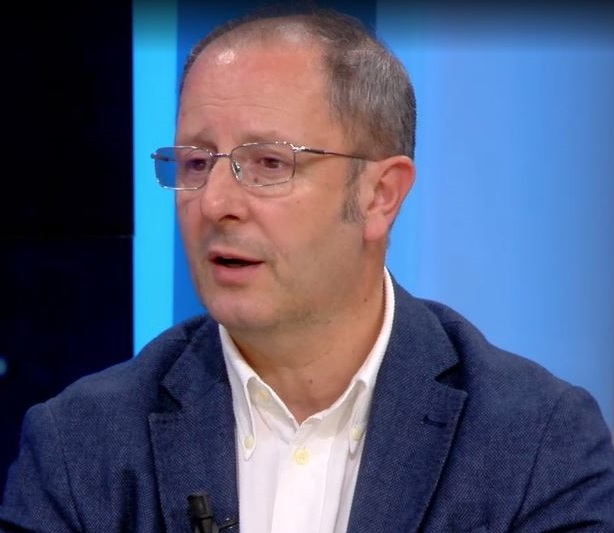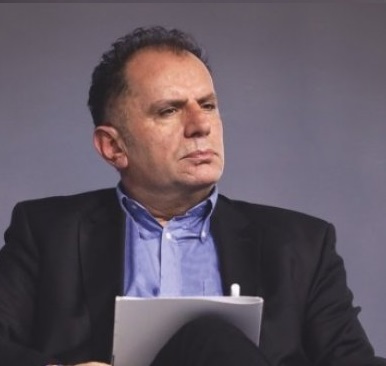For three weeks, the banning of the dinar in Kosovo has been the headline of the clash between Serbia and Kosovo. The reason was the regulation of the Central Bank of Kosovo, which reinforces the fact that the euro is the only legal currency. Although the decision is in accordance with the Constitution and the laws of Kosovo, the practice of using the dinar in municipalities with a Serbian majority has led internationals to request the suspension of the decision, in order to establish a transitional period for adaptation. Experts explain to Faktoje what the decision of the Central Bank of Kosovo actually brings for the Serbs living in Kosovo, but also for the state of Kosovo itself.
by Jona Plombi
In Kosovo , in municipalities with a majority Serbian population, since the end of the war, citizens have been paid and paid in dinars. Euros are also used, but one currency has not excluded the other for at least 22 years in these municipalities.
This practice was called into question on January 17, 2024. On that day, the Central Bank of Kosovo (CBK) published a regulation that emphasized that the only currency allowed for carrying out cash payment transactions and in the payment system in the Republic of Kosovo is Euro. According to the regulation, non-euro currencies can only be used to store in bank accounts and can be used for international payments and exchange. The exchange can only be done through institutions licensed by the Central Bank of Kosovo for this service. The consequence of the decision is the banning of the dinar in Kosovo.
The regulation entered into force on February 1, 2024.
History of currencies in Kosovo
After the end of the war in Kosovo, the United Nations mission in Kosovo, UNMIK in September 1999 decided to use the German mark and other foreign currencies in Kosovo. The reason was the existence of significant amounts of the German mark, which was the most used currency in the period before the war, as well as the fact that the population was familiar with this currency.
In 2002, UNMIK and the European Union entrusted the Central Bank of Kosovo (then BPK) with the replacement of the currency in the euro in cooperation with the European Central Bank. Although it is not part of the Eurozone, Kosovo legally declared the euro as the only official currency. The Constitution of Kosovo of 2008 defined ‘as a valid means of payment the use of a single currency’ (Article 11).
How the dinar has worked in Kosovo
Despite the laws in force, the state of Kosovo has been aware of the operation of a parallel system, through which Serbia pays Serbs in Kosovo in dinars. Using land routes, Serbia through the British company Henderson sends dinars to the Central Bank of Serbia which has a vault in Leposavic. Geron Kamberi, researcher of the Center for Democracy and Governance Studies, calls this payment method a “silent agreement” that has been operating for 22 years.
” Serbia uses this route to pay 31,831 employees of the Serbian minority in the north of Kosovo in the system of health, education and various public services; 29,115 pensioners, of which 4,700 withdraw their “cash” pensions in the subsidiaries of the People’s Bank of Serbia, and also pay through this fund 31,586 Serbian residents who are beneficiaries of social assistance . — Geron Kamberi

“The banning of the dinar in Kosovo — unnecessary haste”
The CBK regulation and the fact that its implementation started two weeks after the announcement brought many reactions. Serbia got involved by accusing Kosovo of “cleansing without the use of weapons”. The decision was viewed with concern by the European Union and the United States of America.
The European Commission expressed regret for the adoption of the decision without prior consultation, based on the effect that the ban of the dinar in Kosovo may have on the everyday life of the Serbs in Kosovo, highlighting the impact that the decision has on schools and hospitals. The EU requested that the transitional phase of the entry into force of the decision be long enough for the adaptation that citizens and institutions must make.
The United States of America, France, Germany, Italy and Britain, member states in the QUINT organization, also asked for the postponement of implementation to allow a necessary transition to adapt. Selami Xhepa , doctor of economics at the University of Tirana, also evaluates the decision as ‘hasty and unfair’ .

” Decisions of such an economic nature are not made with an immediate power of action, that is, today the law comes out and today it enters into force. It is about an economic phenomenon that changes over time due to its own history and as a result such decisions, even if they are taken for political reasons, must have a long transition phase of money replacement. ” — Selami Xhepa.
How does banning the dinar in Kosovo affect the citizens?
The concern of Serbian citizens in Kosovo that they will not be able to receive salaries or pensions from Serbia, for experts, is a technicality that is resolved through the banking system. Expert Geron Kamberi emphasizes that the obstacle that is created is more of a psychological nature, as a transitory phase of adaptation of the residents of the Serbian community to this new payment method.
” Serbian families in the north of Kosovo have the privilege of having two active bank accounts. There are 43 thousand active accounts where money is transferred from the Kosovo budget in Euros. On the other hand, in the municipalities in the north of Kosovo, there are four branches of second level banks operating in the Republic of Kosovo. There are also branches of 15 non-banking financial institutions (eg Western Union), where payments in euros can be sent from the Republic of Serbia to citizens of the Serbian minority living in these areas. ” — argues Geron Kamberi.
Arbër Zaimi, a member of the leadership of the Vetëvendosje movement, does not see any problem in the continuation of pension payments, salaries or assistance. Serbia can send money to Kosovo through transfers to various banks in Kosovo, without having to break the law.
” What is being prevented [with this regulation] is the smuggling of dry money into the Republic of Kosovo. Previously, billions of dinars were brought into Kosovo illegally with vehicles and vans. This money went for cash payments. Part of them may have been pensions and social assistance, but part of them was certainly “subsidy” for recruitment and armament for the violent and criminal activities that culminated in the terrorist attack of September 24 . — Arbër Zaimi.

The Deputy Prime Minister of Kosovo, Besnik Bislimi, one day before the entry into force of the CBK regulation, stated that ‘commercial banks operating in Kosovo have been instructed to open new branches in the four northern municipalities of the country and also the Central Bank obliges them to to offer basic bank current accounts that do not bear any cost for their holders’.
Regardless of who it is, the economy expert Selami Xhepa sees the impact on citizens as problematic due to the deadline for the reinforcement of this new rule. ” There may be implications in the conversion process. There may be a fear that by converting people will lose some of their savings. Because we don’t know how the conversion process happens, a law with such force of action cannot be issued suddenly. It takes a transition time and during this time people have the opportunity to make a decision about returning their deposits from one currency to another at a rate that is suitable for their economic interest .” – Selami Jhepa for Faktoje.
Economic decision — political use
Although the decision has an economic character and is considered legal by Kosovo’s international partners, the fact remains that it is being used politically by Serbia. The former chairman of the Chamber of Commerce of Kosovo, Safet Gërxaliu, former chairman of the Chamber of Commerce of Kosovo, sees this as an unavoidable cost of the abnormal relationship between Kosovo and Serbia. He emphasizes that this decision of the CBK has damaged Kosovo more than the Serbs in Kosovo.

” This topic has been actualized, politicized and internationalized and the very fact that we have harsh reactions from Brussels and especially from DASH harms Kosovo. When to this is added the fact that such a thing happened while Kosovo is under measures or sanctions of the EU, I truly believe that this decision of the Central Bank of Kosovo is a mistake in the steps that Kosovo has taken and apart from other negative consequences, a duration of sanctions for Kosovo will also be sealed .” – Safet Gerxhaliu.
Arbër Zaimi of Vetëvendosje sees it differently, who measures the success of the decision by the final result and not by the obstacles encountered along the way.
” Just like in the case of license plates, which was an agreement reached more than ten years ago, the law on legal currency in Kosovo has existed since the declaration of Independence. For license plates, Serbia created both a conflicting atmosphere and a fog of information, but after three years here we are, Kosovo license plates were forced to recognize them, and that’s good for everyone. Similarly for the financial order of Kosovo, Serbia will be forced to recognize and implement it. I hope as soon as possible, without confusion and unnecessary delays.” – Zaim assesses.
Safet Gërxaliu does not see any problem in receiving salaries in euros from Serbs in Kosovo. The problem – he says – lies elsewhere.
” It must be understood that Kosovo has no diplomatic power, whether political or economic, to withstand European and American pressure. It must be understood that Kosovo is a product of international diplomacy and coordination and coordination of actions with international friends is very necessary. Which means that what will happen worst in this scenario, the first will definitely be an extension of the implementation, the second the report of the Central Bank from Serbia warns that this topic will become part of the dialogue in Brussels and the third must find a compromise like with energy and license plates and in the end Kosovo will still be damaged and a loser. ” – argues Gërxhaliu for Faktoje.
cONcluSiON
The Government of the Republic of Kosovo has pledged that ‘the transitional period will ensure that citizens get used to the new reality as soon as possible, as easily and without damage, investing more in information and education of businesses and citizens and not in measures punitive’. The Ministry of Trade and Industry has announced that the Business Registration Agency will start operating in the four municipalities in the north of Kosovo, so that Serbian businesses there can be registered and taxed.
Legally, the decision of the Central Bank of Kosovo is universally accepted. Opinions are divided on the way of its implementation. And while Serbia takes advantage of the confusion created to feed its narrative of “purging the Serbs” from Kosovo, the latter has so far refused to suspend the decision. In this situation, experts see different results. On one side is the Prime Minister of Kosovo and his legitimate right – although rushed according to experts – to implement the economic and financial rules of the state of Kosovo. On the other side is the Serbian community in Kosovo, caught between two fires, the already effective decision of the Central Bank of Kosovo and the confusion fueled by the Serbian narrative imported from Belgrade.




